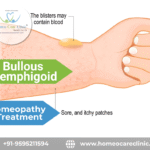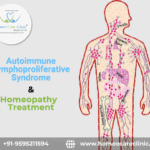Melasma is a common skin condition characterized by dark, discolored patches, typically on the face. It’s often referred to as the “mask of pregnancy” due to its prevalence among pregnant women, but it can affect anyone. While melasma is not harmful or painful, it can impact self-esteem and confidence, making it essential to explore its causes, treatment options, and success stories.
What is Melasma?
Melasma presents as brown, gray, or bluish patches on the skin, commonly on the cheeks, forehead, nose, and chin. It occurs due to the overproduction of melanin, the pigment that gives skin its color. These patches are typically symmetrical and often become more noticeable with sun exposure.
Causes Melasma
Melasma’s exact cause isn’t fully understood, but several factors can trigger or exacerbate the condition:
- Hormonal Changes:
- Pregnancy is a significant trigger, as hormonal fluctuations during this time can increase melanin production.
- Birth control pills and hormone replacement therapy (HRT) can also contribute.
- Sun Exposure:
- Ultraviolet (UV) rays stimulate melanocytes (melanin-producing cells) and can worsen melasma.
- Genetics:
- A family history of melasma increases the likelihood of developing it.
- Skin Type:
- Individuals with darker skin tones are more susceptible due to more active melanocytes.
- Stress and Thyroid Disorders:
- These factors can also influence hormone levels, potentially triggering melasma.
Types of Melasma
Melasma is classified into three main types based on the depth of pigmentation:
- Epidermal Melasma:
- The pigmentation is in the outermost layer of the skin (epidermis).
- It appears brown and responds well to treatment.
- Dermal Melasma:
- The pigmentation lies deeper in the skin (dermis).
- It appears bluish-gray and is more challenging to treat.
- Mixed Melasma:
- A combination of epidermal and dermal melasma, showing brown and gray patches.
- Treatment success varies depending on the proportion of each type.
Diagnosis of Melasma
A dermatologist typically diagnoses melasma through a visual examination. A Wood’s lamp (a special light) may be used to determine the depth of pigmentation. In rare cases, a skin biopsy might be conducted to rule out other conditions.
Conventional Treatments for Melasma
- Topical Treatments:
- Hydroquinone: A common skin-lightening agent used to reduce pigmentation.
- Tretinoin and corticosteroids: Often combined with hydroquinone for better results.
- Azelaic acid and kojic acid: Alternatives to hydroquinone.
- Chemical Peels:
- Superficial peels with glycolic acid or salicylic acid can exfoliate the top layer of skin, reducing pigmentation.
- Laser and Light Therapy:
- Treatments like intense pulsed light (IPL) or fractional lasers target pigmentation but can be expensive and require multiple sessions.
- Sunscreen:
- Daily application of broad-spectrum sunscreen with SPF 30 or higher is crucial to prevent worsening.
While these treatments can be effective, they often come with side effects like irritation or temporary worsening of pigmentation. Additionally, melasma may return once treatment stops, making maintenance essential.
Homeopathic Perspective on Melasma
Homeopathy approaches melasma holistically, addressing the root cause rather than just the symptoms. Remedies are selected based on the individual’s physical, emotional, and mental state. Homeopathic treatment focuses on regulating hormonal imbalances, improving liver function, and enhancing skin health naturally.
Best Homeopathy Medicine for Melasma
- Sepia:
- Often prescribed for hormonal melasma, particularly in women experiencing menstrual irregularities or pregnancy-related pigmentation.
- Thuja:
- Beneficial for individuals with pigmentation caused by overexposure to sunlight.
- Sulphur:
- Suitable for those with dry, itchy, or reddish-brown patches, often aggravated by heat.
- Lycopodium:
- Used when melasma is accompanied by digestive issues or stress.
- Calcarea Carbonica:
- Effective for stubborn melasma in individuals prone to excessive sweating or weight gain.
Homeopathic remedies are free from side effects and aim to provide long-lasting results. However, treatment requires patience and consistency.
Real-Life Case Study: Overcoming Measles Homeopathy Treatment
Patient Profile:
- Name: Sukhdeep (Name Change)
- Age: 35 years
- Location: Canada
- Complaint: Melasma for over five years, with dark patches on both cheeks and the forehead. The condition worsened during the summer months.
- Medical History: Sukhdeep had no significant medical issues but had been using oral contraceptives for three years.
Initial Consultation: During the initial consultation, Sukhdeep expressed frustration with her appearance and the ineffectiveness of conventional treatments. She had tried topical creams, sunscreen, and chemical peels, but the patches always returned. She also reported feeling stressed and self-conscious about her condition.
Homeopathic Analysis: After a detailed assessment, the following factors were considered:
- Hormonal imbalance due to oral contraceptives.
- Sun sensitivity exacerbating the pigmentation.
- Emotional impact, including stress and low self-esteem.
Treatment Plan:
- Remedy Prescribed: Sepia 30C
- Sepia was chosen for its efficacy in addressing hormonal and pigmentation issues, particularly in women.
- Lifestyle Changes:
- Daily use of a high-SPF sunscreen.
- Increased water intake and a diet rich in antioxidants.
- Stress management techniques like yoga and meditation.
Progress Over Six Months:
- Month 1: Minimal change in pigmentation, but Sukhdeep reported feeling more energetic and less stressed.
- Month 3: Noticeable lightening of patches. Friends and family commented on the improvement.
- Month 6: Significant reduction in pigmentation. The patches were barely visible, and Sukhdeep’s confidence improved dramatically.
Outcome: By the end of the treatment, Sukhdeep’s melasma had faded substantially. She continued using sunscreen and maintained a healthy lifestyle to prevent recurrence. Her journey highlights the effectiveness of homeopathy in addressing the root causes of melasma.
Case Study: Patient Cured from Melasma
Preventing Melasma: Practical Tips
- Protect Your Skin from the Sun:
- Use a broad-spectrum sunscreen daily, even on cloudy days.
- Wear wide-brimmed hats and sunglasses to shield your face.
- Avoid Harsh Skincare Products:
- Choose gentle, non-comedogenic products.
- Avoid skin irritants like fragrances and alcohol-based products.
- Adopt a Healthy Lifestyle:
- Eat a balanced diet with plenty of fruits, vegetables, and whole grains.
- Stay hydrated and get enough sleep.
- Manage Stress:
- Practice relaxation techniques to reduce stress, which can affect hormonal balance.
- Consult a Professional:
- Seek advice from a dermatologist or homeopath if you notice persistent pigmentation.
Final Thoughts
Melasma can be challenging to manage, but with the right approach, significant improvement is possible. Whether you choose conventional treatments, homeopathy, or a combination of both, the key is consistency and sun protection. Sukhdeep’s story demonstrates that addressing the root causes and maintaining a positive outlook can lead to lasting results. If you’re struggling with melasma, consider consulting a qualified practitioner to develop a personalized treatment plan.
FAQs
- Can melasma go away on its own?
- In some cases, melasma may fade after pregnancy or discontinuing hormonal medications. However, consistent sun protection and treatment are often needed for lasting improvement.
- Is melasma contagious?
- No, melasma is not contagious. It’s a non-infectious pigmentation disorder.
- Can men develop melasma?
- Yes, although melasma is more common in women, men can also develop it, especially with excessive sun exposure or hormonal imbalances.
- How long does homeopathic treatment take to show results?
- Results vary depending on the individual’s condition and adherence to the treatment plan. Most patients notice improvement within 3 to 6 months.
- Can I prevent melasma completely?
- While you can’t entirely eliminate the risk, protecting your skin from the sun and maintaining hormonal balance can significantly reduce the likelihood of developing melasma.
Homeo Care Clinic offers a holistic approach to treating the disease. The remedies mentioned above can treat the underlying causes of the condition and offer relief from the discomfort. However, it is important to consult a qualified homeopathic practitioner for the correct dosage and duration of treatment. Homeo Care Clinic provides comprehensive care for various ailments, and offers customized treatment plans based on individual requirements.
To schedule an appointment or learn more about our treatment, please visit our website or give us a call +91 9595211594 our best homeopathy doctor will be here to help.
Follow us on Facebook, Twitter, and Instagram for valuable insights into the world of homeopathy and holistic health.
Facebook – https://www.facebook.com/homeocareclinicpune
Instagram – https://www.instagram.com/homeocareclinic_in
Website – https://www.homeocareclinic.in
Success Stories of Patients – homeocareclinic.in/category/case-study
YouTube Patient Review – https://www.youtube.com/playlist?list=PL__SnPQCl4WLPFV7iJOdQxn4YaB6IkPHJ
LinkedIn – linkedin.com/company/homeo-care-clinic
Chat with a best homeopathic doctor privately
If you have any queries regarding your disease or any symptoms, click to send a WhatsApp message. Our best homeopathy doctor will be happy to answer you.
Book an Appointment
If you want to visit our clinic, click to book an appointment.
Online treatment
If you are a busy professional, or you are living in a remote town or city, with no best homeopathic doctor near you, Click to start an online homeopathic treatment with the world’s exclusive, most experienced and best homeopathic clinic, managed by Dr. Vaseem Choudhary world-renowned homeopathic doctor expert







